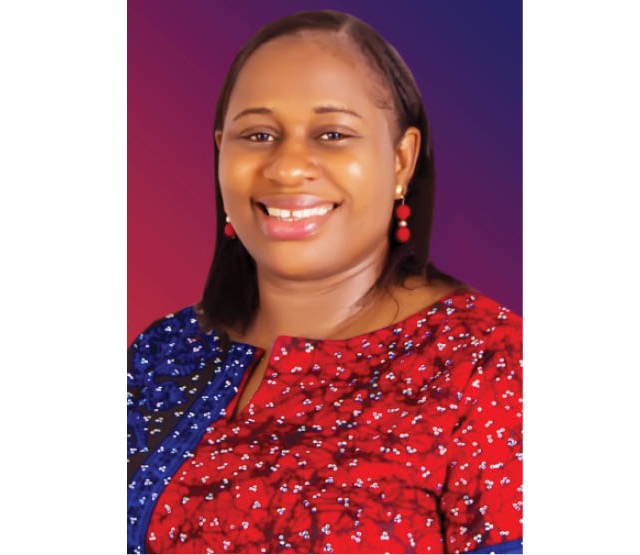Female scientists should break glass ceiling in research – UNESCO-L’Oreal awardee
Thousands of people who were displaced from their homes following attacks by insurgents and bandits are taking refuge in temporary camps in some states

Dr Adekemi Adesulu-Dahunsi
Dr Adekemi Titilayo Adesulu-Dahunsi is an assistant professor in Food Science and Technology, Bowen University, Iwo, Osun State, with specialisation in Food Microbiology and Biotechnology.
She is one of the two Nigerians awarded the L’Oreal-UNESCO for Women in Science (FWIS) prizes among the 20 Young Talents in sub-Saharan Africa. She spoke on her research and what she intends to achieve.
What do you hope to achieve with your research?
Food is no doubt the most basic need for human survival. Food insecurity remains prevalent, particularly in Africa, and according to the report of the African Food Security Briefs, approximately one out of every three persons in sub-Saharan Africa is undernourished.
To achieve the number one and two of the 2030 goals for sustainable economic development set by all the United Nations member states in 2015 (‘No poverty’ and ‘Zero hunger’), this food insecurity issue can be achieved through improved fermentation technology.
As a food microbiologist, my interest is in the development of safe food for my community and Africa at large, and seeing myself transforming lives and having positive impacts.
I aimed at complementing the method of food production and enhancing stability in food end-product through biotechnological intervention and achieving standards related to food security in Africa.
How do you feel being among the 20 awardees for the UNESCO/L’Oreal Foundation grant?
I felt elated when I received a phone call sometime in September, 2020 from the project officer of the L’Oréal-UNESCO FWIS Programme, France, that I was part of the 20 Young Talents in sub-Saharan Africa who were awarded the L’Oreal-UNESCO for Women in Science Prize (the post-doctoral category).
The official email was sent on October 5, 2020. This is a remarkable achievement which I am so proud of.
I return all glory to the Almighty God who made this possible at this stage of my career.
What does the award mean to you?
This award will give me greater visibility among the international scientific community through my significant contributions to research in the field of food microbiology.
How would you describe the involvement of women in science in Nigeria?
Women’s involvement in science in Nigeria cannot be equated with that of their male colleagues.
But statistics has shown that women make up to 31 per cent of researchers in sub-Saharan Africa. This is an encouraging figure, which I believe should inspire African women researchers and scientists to make tangible impacts in tackling challenges faced in technology, health, agriculture, food security, energy and societal development.
Do you think Nigerian scholars are doing enough in terms of research to address challenges in the country?
Yes, but we can still aspire to do more by seeking grant/funding opportunities and engaging in collaborative research, through which we can build an incredible future for Nigeria and Africa at large.
How would you assess the relationship between the academia and industries, in terms of implementing research findings?
Science plays a central role in contemporary society, with the potential to improve lives in a multitude of ways and advance national development.
Science is regarded as a cornerstone for industrial developments.
The relationship between the academia and industries should be synergistic to allow the industry utilise the scientific knowledge developed in the academia; and through collaboration, the nation will definitely experience development.
Many academies also serve as consultants to these industries, thus developing solutions to production through scientific-based research.
As a woman in science, a field mostly dominated by men, what are the challenges women face?
Women in science have strived so hard to achieve a balanced work life, judging from my personal experiences as striking a balance between career and domestic responsibilities.
As a woman pursuing a career in science and being a wife and mother at the same time, she has a lot of roles to play, and this hinders achievements, except those who have very supportive spouses.
It is also well understood that so many women have relatively little time for research and publishing, compared to their male counterparts who are not much involved in equivalent domestic and family responsibilities.
They also lack female mentors, and the number of citations is far lesser for women when compared to men.
What else would you like to talk about?
Although science is a field dominated by men, some outstanding women, despite all odds, can also make meaningful impacts.
In Nigeria, proactive formulation and implementation of new policies should be established and enforced by the Federal Government to support women scientists because they remain under-represented in the field of science.
That will create optimal gender balance in research.
Also, the females should be encouraged to participate in science subjects from secondary school.
The glass ceiling attitude in research by the female should be eliminated.
Many women scientists in Nigeria are very timid and are discouraged from taking up challenges because of the fear of being rejected or turned down.
Women in science should have the understanding that their male counterparts do not have special brains.
It is all about hard work, persistence and determination to be at the top of one’s career.
I will also advise that there is a need to publicise and celebrate the successes of women scientists as this may serve as the impetus for others to follow.
